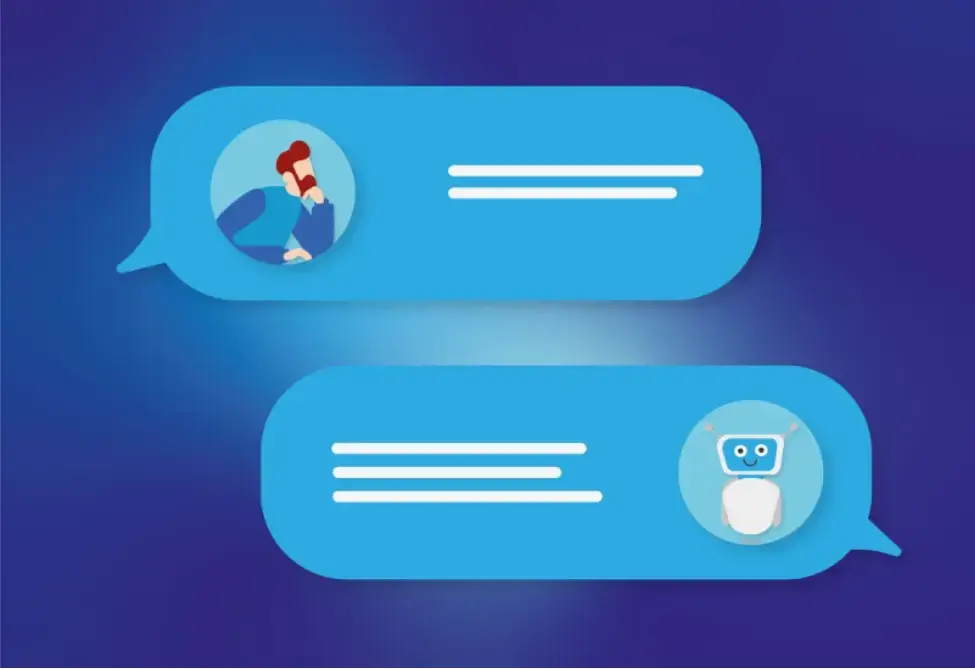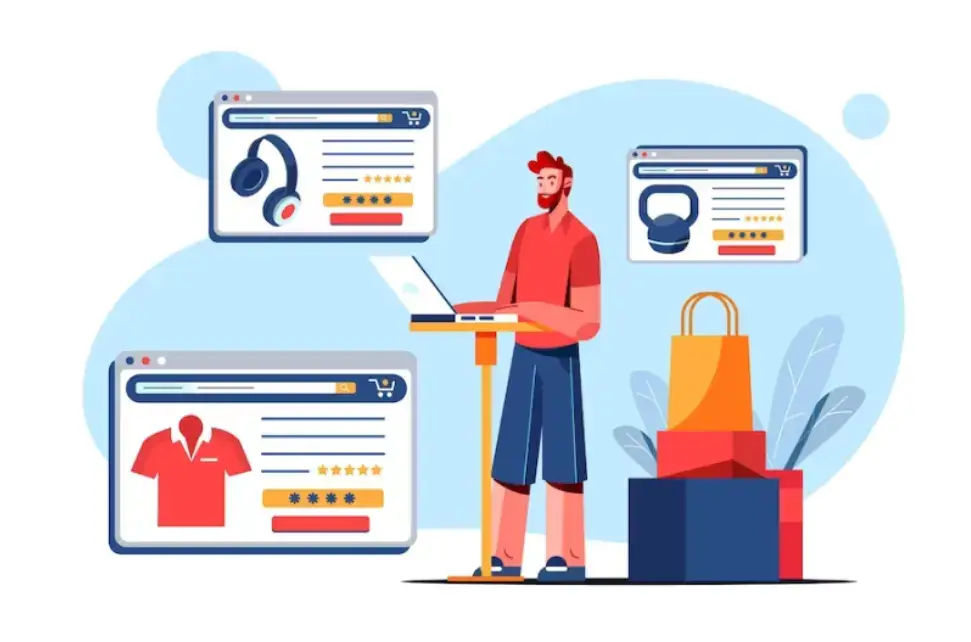AI, or artificial intelligence, is quickly making its way into a variety of industries and businesses. With the power of AI, brands are seeing new ways to use it everyday.
Whether you want to boost engagement, automate processes, or improve efficiency and productivity for an overall better ROI, there's an AI tool for it. And the eCommerce industry is no different.
AI in eCommerce is focused on two main aspects – optimizing processes and operations for better productivity and allowing personalization to offer a better user experience.
Shortcuts:
- What is the Role of AI in E-Commerce Growth?
- Top 5 AI Advancements in E-Commerce
- Factors to Consider When Choosing AI Tools
The latter is vital, as it allows businesses to offer a unique and well-optimized sales experience, which is critical for the growth of a small business.

However, therein lies the confusion. A large number of AI personalization tools like chatbots and more for eCommerce are available on the market.
So how can one know what tools and AI features their business requires before making that decision?
Let’s take a look at some of the top advancements in AI technology, and see how they can help a small business optimize its processes and operations for growth.
What is the Role of AI in E-Commerce Growth?

One of the most popular ways to use Enterprise AI solutions to grow businesses is to use them to analyze large amounts of data and come up with helpful insights.
Business growth used to be all about how you market your product on your eCommerce platform.
However, times have changed. Today, it is all about how well you connect with your users and how good of an experience your site provides.
In recent years, there has been a massive jump in the number of eCommerce businesses, and each brand has its own set of needs and requirements for growth.
For example, some companies might have excellent sales journeys but need help with customer engagement.
Others may have great recommendation systems yet have a search system that isn’t optimized. Based on that, AI can help a business find those gaps, address them, and track their performance afterward to assess the impact of change.
That which may take an individual or a team of people days to go through, an AI can work through in a matter of minutes or hours.
With businesses generating large amounts of data today, from digital marketing analytics to inventory statistics, AI can be used in many ways to aid a business’s growth.
Another important aspect of AI is to help an eCommerce business provide a personalized experience to its customers, resulting in a higher conversion percentage.
Read more about eCommerce conversion funnel.
That personalization is possible by suggesting items based on the user’s history, suggesting replenishment of consumables, autocomplete search results based on user persona, and more.
Therefore, we can say that AI has a massive role in the transformation and growth of an eCommerce business.
Top 5 AI Advancements in E-Commerce
- Customer-centric personalized search
- Targeting leads for specific products
- Optimizing the sales process according to each customer's needs
- Cross-device screen personalization
- AI chatbots to boost engagement

Today, many AI advancements are available that could help transform an eCommerce business for growth.
However, we will discuss the five most helpful techniques that could help your eCommerce business improve personalization, thus boosting sales and increasing your likelihood of business growth.
Let’s take a look.
1. Customer-centric personalized search
The first AI personalization technology on this list uses AI to implement a customer-centric search option.
It means that the AI model implemented within your eCommerce website would analyze user habits and browsing trends to adapt its search parameters accordingly.
For example, your website sells apparel and footwear.
A customer has primarily been browsing through men’s items. After a while, if they search simply for “Shoes”, your AI should show results for men.
eCommerce businesses today report that a sizable fraction of their lost leads are due to customers abandoning the shopping experience due to useless and irrelevant search results.
Humans tend to get frustrated easily if the other side fails to understand what we are saying. And a frustrated consumer behaves erratically, something no eCommerce business wants.
2. Targeting leads for specific products

In eCommerce, most businesses target a broader niche rather than a narrow, specific niche.
For example, most apparel stores online have categories of items broadly related to each other but target different customer demographics.
In those cases, a successful promotional campaign would require that each prospective customer be targeted according to their demographic needs and browsing patterns.
But how can each target be assessed for this to be a success?
Businesses can use AI tools to assess the user’s habits and activity on the website and other available options to identify the most likely product options to promote for them.
This way, your promotional campaigns have a higher chance of conversion, resulting in a better ROI.
This technique is also known as predictive marketing, where AI helps businesses predict the most likely items a potential consumer may buy.
It has a happy side effect of making the customer establish a more profound connection with the eCommerce business by believing them to be a brand that understands their specific consumer needs.
3. Optimizing the sales process according to each customer’s needs
Now, just targeting consumers with the right promotions is not enough.
Unless your entire sales process is optimized, even a hot lead will have difficulty converting. And today, techniques like badgering the customer until they convert aren’t as effective as in decades earlier.
That means that besides your promotions being targeted to people with the correct needs, they also need to be part of a sales process that gently but assertively guides the consumer to your brand.
From employing various channels to market your brand, like TVCs or social media (Facebook or Instagram marketing), to creating sales messages that appeal to consumer sensibilities, the sales process covers a range of elements.
You can use AI to incorporate technological advancements such as natural language processing so people can use voice commands or vague searches to find what they are looking for.
A great example is The North Face, a large eCommerce brand that targets outdoorsy consumers to sell everything from apparel to footwear and even accessories like bags.
They use the IBM Watson AI to find the items they are searching for with the vaguest of voice search terms.
The way it works for them is that the AI asks the consumers to answer questions like, 'Where would the consumer use that item?', through voice input.
The answer is then analyzed, and relevant metrics identified to shortlist the number of options shown to the consumer based on their explicit needs.
And the best part is that once they process a query like this, the AI trains itself to answer a similar question quicker the next time by learning from this experience.
4. Cross-device screen personalization

People today tend to browse on the go and often switch between devices, such as a laptop/PC or a smartphone. Often, they might be browsing your site on their laptop when they might have to get away from it for some reason.
In such cases, it is possible that by the time the person returns, they might not be in the mood to buy anymore. Now, how could AI technology help you with this specific issue?
If your eCommerce website allows them to continue their buying journey via their phone, your AI can analyze their activity on your site and send push notifications regarding that.
With a constant reminder as to why they were on your website, chances are high that they may continue that journey on their phone and buy the product they desired earlier.
The AI helps by personalizing the notifications and the site’s view for each individual by highlighting the products they desire front and center.
This way, with the right items attracting them, chances are better that the consumer will convert.
5. AI chatbots to boost engagement
Finally, let’s talk about engagement. Consumers today tend to patronize brands that offer them more than just their products. They prefer brands that have a brand vibe that appeals to their sensibilities.
That is especially true of Gen Z, who are more socially entrenched than the generations before them and prefer brands that are more socially active and present.
One aspect of this is how those brands connect and engage with their customers, a vital factor that can affect your business reputation via social media-based word-of-mouth marketing.
You may have seen Wendy's Twitter handle engaging in friendly banter with its customers and trolling its rival accounts.
That is a great way to boost your social engagement, especially if you have a clientele among the Millennials and Gen Z, who arguably make up a sizable fraction of eCommerce patrons.
Another way to boost engagement is to use a chatbot on your website.
Now with chatbots, you may be thinking about those programmed to answer a few pre-determined questions, relaying answers fed into its database.
However, in recent years, AI-based chatbot advancements now mean you can include a chatbot capable of holding entire conversations with a consumer naturally and quickly.
These bots are designed to not only respond to the queries but also match the tone, vibe, and style to put them at ease.
This way, it frees your sales team to deal with actual hot leads while the chatbot filters through those just there to browse or engage consumers in conversation until a sales representative is available.
Factors to Consider When Choosing AI Tools
- Business needs
- Technical capabilities
- Accuracy
- Scalability
- Cost

After going through the article, you might be excited to integrate AI technological solutions into your eCommerce operations to boost productivity and scale up your business.
However, before you do that, you should consider a few factors to make this a successful endeavor. Some of the most critical factors to consider include:
-
Business needs
The most critical factor you need to consider is your business needs.
For example, if you cater to a limited inventory of items, then incorporating a predictive or suggested AI system would be a waste of time and money.
Rather, an AI-based lead generation and qualification system may be what you need. Therefore, before choosing an AI tool or technology to incorporate, you should determine whether your eCommerce business needs it.
-
Technical capabilities
Once you have determined that you need a specific AI technology, you need to assess the technical capabilities of your existing IT infrastructure. That will help you identify whether the available option fits your current infrastructure.
Now, it is rare that an AI solution you need is provided by a single vendor. In that case, you may choose the option that suits your business infrastructure.
However, if it is a proprietary AI tool, you may need to assess the modifications required and their cost before finalizing the choice.
-
Accuracy
Next is the accuracy of your preferred choice.
No two AI tools are built the same, and they carry over into their effectiveness within a company. You should find an AI tool with an accuracy good enough to search your business needs.
The more accurate your tools, the happier your clients are. And that is the way to boost revenue and grow your business.
-
Scalability
Another factor when getting an AI technology or solution is to check whether it is scalable.
As businesses grow, so do their technical demands. And for an AI tool that forms the backbone of your sales processes, it must be scalable.
Otherwise, with your target being to use AI to grow your small business, integrating an AI solution that won’t scale with your business would be a bad move.
-
Cost
The final and most critical factor is the cost of the AI tool or solution.
The processing required for AI and data analytics relies on readily available processing power. And as the number of requests increases, so would your processing demands.
That can quickly become too expensive for a small business, so you should clearly understand the fine print to evaluate whether the cost is worth the benefits.
Conclusion
Personalization can be a great tool in getting your eCommerce business to the forefront. It allows for better community engagement, increased sales, and a better user experience.
But if you do not know where to start with harnessing the power of AI to grow your small business, then the technological avenues and advancements described above can help you do so smartly.
So why wait? Enjoy the power of AI advancements for personalized experiences in eCommerce, and watch your business growth explode!
Author Bio
Hailey Savona is an avid content marketer at a online logo design services provider | Logo Poppin. She loves to talk and write about everything tech including the latest trends. When Hailey isn’t blogging, she likes to take her dogs to the park for a little game of catch.


